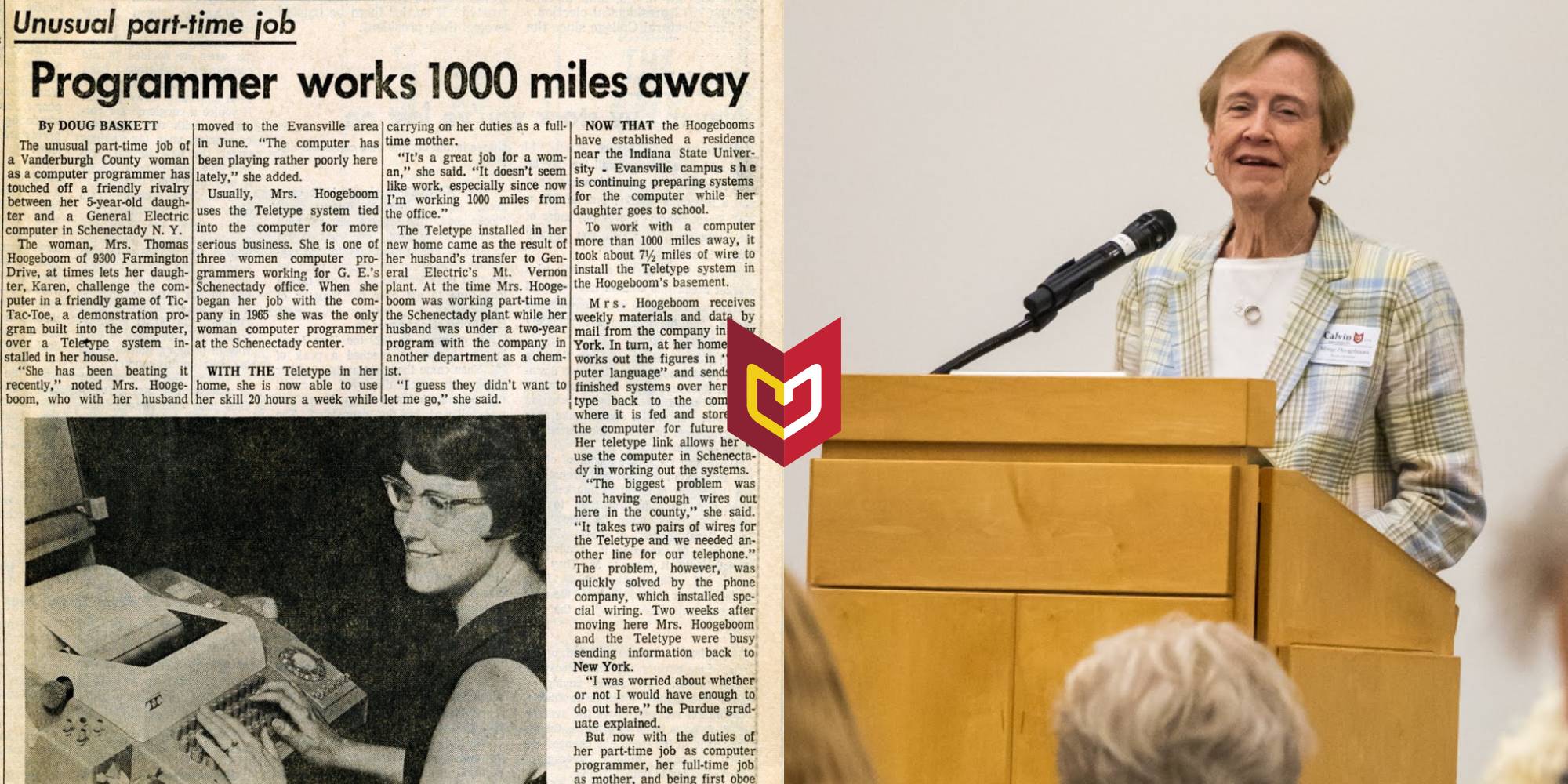Calvin is a Christian liberal arts university located in the college town of Grand Rapids, Michigan.
We're known for academic excellence.
Our students engage the world with curiosity and conviction.
What would you like to study?
We offer more than 100 programs in a full range of Bachelor's and Master's degrees.



Visit Calvin. Get $2000.
Explore campus in a personalized tour and see how to get the Visit Grant.
Quick Facts
Academic programs
Graduate placement
Student-to-faculty ratio
Grade point average
Committed Christian faculty
NCAA DIII Varsity teams

Why choose Calvin?
Faith and learning combined for deeper understanding.
Your life and work, launched with confidence and purpose.
Support that doesn't waver and goes the distance for you.
















